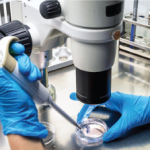Rheumatologists worried about the future of their private practices might want to consider jumping onto the super group trend that allows physicians and other providers with similar services to team up to share opportunities and minimize financial burdens.
The biggest concern for private practice physicians watching the trend but not yet embracing it is fear of losing autonomy, agreed members of a recent panel discussion in Marina Del Rey, Calif., sponsored by the California Rheumatology Alliance (CRA).

Dr. Feldman
Panel moderator and CRA President Dr. Gary Feldman defines a super group as an aggregation of previously separate practices into a single entity to obtain advantages and improvements achievable with a scale that individual practices can’t obtain; those practices may or may not have competed with each other.
The current infrastructure may not be best for navigating increasingly complex regulations and evolving payment models. A key question in choosing the super group path, says Dr. Feldman, is what the tradeoff is for less autonomy and whether it’s worth it to rheumatologists currently going it alone in smaller or solo practices.
More than half of all trainees currently entering the rheumatology field are becoming employees rather than employers as the practice environment twists and turns to accommodate new realities of nationwide health insurance reform. Increasing vulnerabilities and changes in payment models will, no doubt, present ever more challenges for the little guy overwhelmed by the administrative burdens of changing protocols and procedures, panel member Dr. Michael Schweitz told the audience.

Dr. Schweitz
“The paradigm is changing,” said Dr. Schweitz, a rheumatologist who recently initiated efforts to form a super group of physicians in South Florida. Opportunities may shrink for practices that cling to traditional modes of practicing medicine, he said.
On the other hand, the people sitting next to you are not your competitors any longer, said Dr. Todd Moldawer, another panel member who is a managing partner of a large super group operation in California’s San Fernando Valley.
“They are really your opportunity to become more successful in your practice and to help limit the impact of changes … across the entire medical landscape,” Dr. Moldawer told the audience.
In a room filled with rheumatologists, Dr. Moldawer asked how many have their own individual MRI machines or infusion centers. The lack of response emphasized his point, he said, that the more rheumatologists who contribute to an infusion center, the lower the cost will be for individual providers.
Individual Team Players
The desire to maintain a sense of independence led Dr. Schweitz and other physicians to seek only like-minded team players when they set out to form their group about a year ago.



